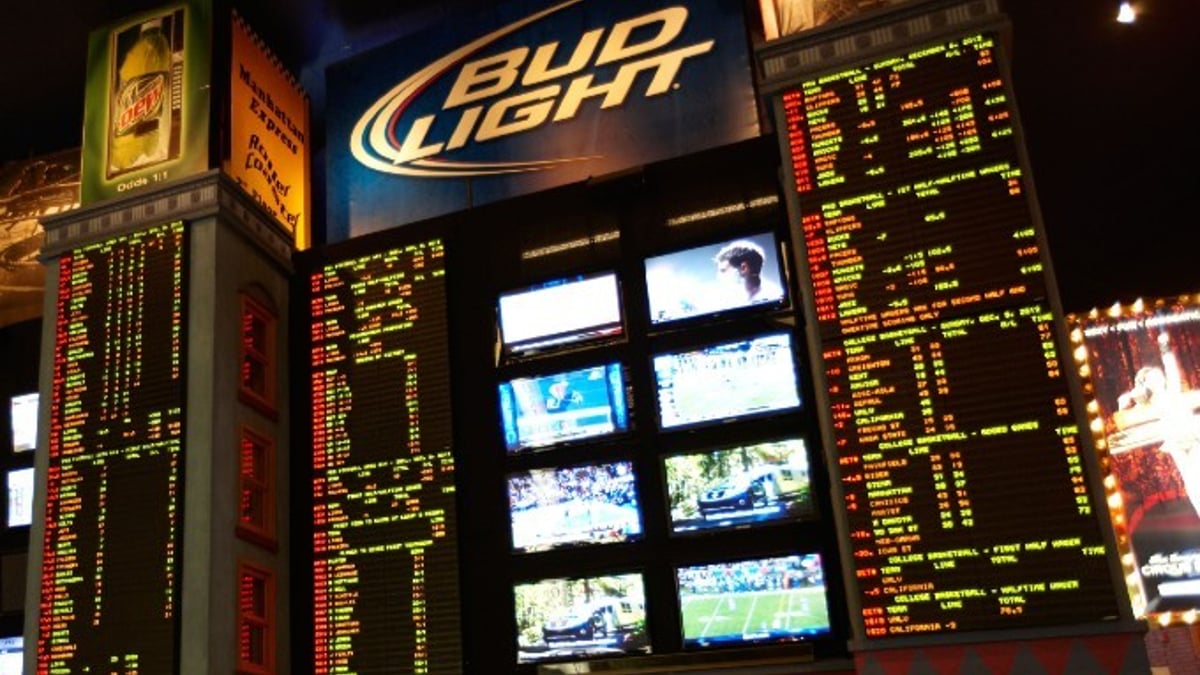Gaming Went From COVID to Best Year in History of Industry, says AGA President

The American Gaming Association trumpeted the gambling industry’s continued comeback from the COVID-19 pandemic in a wide-ranging presentation Tuesday during a virtual state-of-the-industry that covered the many aspects of what has become a complex and multi-faceted business.
AGA president Bill Miller presented statistics that showed the gaming industry is rebounding from the pandemic despite some important consumer groups being absent.
The U.S. commercial gaming revenue, which includes brink-and-mortar casinos, iGaming and online sports betting, hit an all-time record of nearly $53 billion in 2021. That was more than 21% higher than the previous annual record in 2019. Comparisons to 2020 are barely relevant since pandemic-related closings and capacity limits were widespread that year, but the 2021 revenues were nearly 77% higher than 2020.
While revenues from Native American casinos are not yet available, the AGA estimates that those revenues will come in at $35 billion to $40 billion, with most that coming from live slots and table games.
Not surprisingly, the fastest-growing segment of the gambling industry is internet gambling, both mobile sports wagering and online casinos with combined revenue of about $8 billion.
That $8 billion (almost $4.3 billion from sports and about $3.7 billion from casinos) makes up about 15% of all commercial gaming revenues. When Tribal gaming revenues are eventually considered, about 8% of all gaming revenues in the U.S. can be attributed to internet wagering.
Still, when viewed in terms of incremental growth, the trajectory of internet gambling is impressive. In 2019, it represented 3% of all commercial gaming revenue; in 2020, it was 10%, and last year, it hit a record percentage of 15%, as mentioned above.
The percentage increases in online revenue were mainly fueled by the growing number of jurisdictions legalizing online sports wagering and that two states, Michigan online casino and Connecticut, launched iGaming in 2021 taking the number of such states to six.
“Despite the uncertainties the pandemic continues to present, from labor shortages to supply chain disruptions, our incredible rate of recovery sets us apart from others in the hospitality sector and the broader economy,” Miller said.
Gross Gaming Revenue Up 20%
While U.S. travel spending was down 20% in 2021, the AGA pointed out that gross gaming revenue was up 20%. However, the gaming industry's recovery is far from complete.
“We’re still waiting for business and international travel to gain momentum and meetings and conventions to return,” Miller said while also drawing optimism from the revenue figures.
Along with international and group gatherings, still another traditional component of the gaming economy is also slow to return – older casino-goers. The average age of casino visitors dropped from 49 to 45 since the start of the pandemic.
On one hand, casino operators have been trying for years to lure younger customers, so, on the surface, the demographic shift could be seen as some good news. But the reality is that the drop in average age isn’t just about more younger people in casinos, it also reflects health issue concerns of older customers about casino environments in the age of COVID. Those reluctant customers are expected to return as COVID concerns dissipate.
At the end of last year, there were 466 brick-and-mortar commercial casinos in 25 states and six states offering full internet casino gambling. Casino gambling still forms the bulk of the commercial industry’s revenues, about 85%.
The top four gaming regions were, in order: Las Vegas, Atlantic City, Chicagoland, reclaiming the No. 3 spot, with the Washington D.C. area dropping back to No. 4.
New Jersey Led Way in 2021
In terms of sports gambling revenue (the hold was 7.5% in 2021), New Jersey was the leader with $815 million in revenue followed by Illinois, Pennsylvania, Nevada and Michigan.
Now that New York has statewide online sports wagering to go along with its existing retail sportsbooks in upstate casinos, the Empire State will surely take over the lead in handle and revenue although the bottom line for operators remains a question with a 51% tax rate there and over-the-top promotional expenses.
In terms of revenue, iGaming remains a quietly effective rainmaker. Only six states have iGaming but the online slots and table games in those places yielded a combined $3.7 billion up nearly 140% from 2020.
Along with 2022 launches of mobile sports betting in New York and Louisiana, sports betting is expected to eventually start this year in Nebraska and Ohio as well as online sports betting in Maryland where retail sportsbooks opened in December, while others, such as Unibet MD sportsbook are expected to launch soon. And Virginia may get its first brick-and-mortar casino this year and several racinos are planned in Nebraska.
While handicapping gaming legalization efforts is not always easy, seven states are considering sports betting legislation and four states are considering iGaming.













